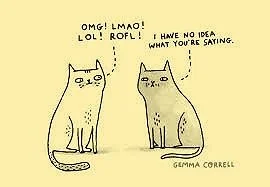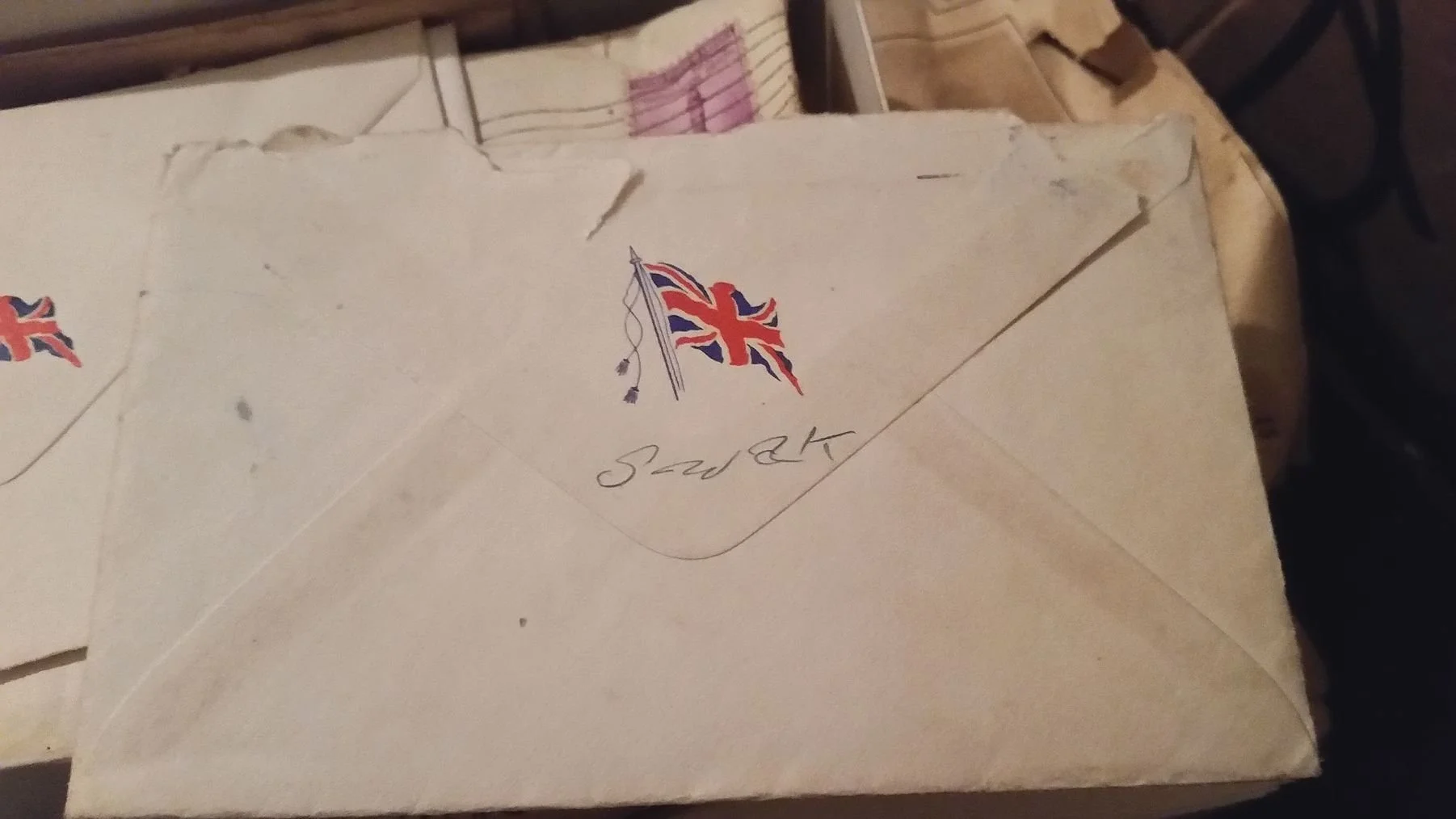By The Landlord
“ASAP. Whatever that means. It must mean, ‘Act swiftly awesome pachyderm!’”– Dr Seuss, Horton Hears a Who!
“Pick at random any three letters from the alphabet, put them in any order, and you will have an acronym designating a federal agency we can do without.” – Milton Friedman
GAS! IHMO, KISS! OMG! WTF? Are we living through an acronymic epidemic? They've increasingly become an integral part of our spoken and written language, sometimes clever and convenient, technical or chat speak, but also often confusing, annoying, pretentious or lazy, and driven by different needs and urges, perhaps to save time or space, or in seeking to be specialised, secretive or stylised.
Just to clarify, an acronym is a form of abbreviation, using the letters of a longer phrase or name to create a shorter word, or group of letters, often spoken, with a meaning that aims to be recognisable. As official names whether its in politics, media or sport, there are many we use, such as BBC, CIA, NATO, NASA, ATM, BP, ESSO, USA, and LA are all so common that we want to dismiss them for this topic, but that's also open for debate. It might depend on context.
But this week, the emphasis is on songs that appear to consciously and creatively use acronyms, perhaps in titles, but also in lyrics. These acronyms will still contain a meaning that may be instantly recognisable but might also be cryptically unpacked, and their sound might perhaps be used musically or to help create memorable lines or rhymes.
There are many common words that we might even forget they are acronyms, to the point where they regularly not even fully capitalised, such as laser (light amplification by stimulated emission of radiation), radar (radio detecting and ranging), scuba (self-contained underwater breathing apparatus), jpeg (Joint Photographic Experts Group), pin (personal identification number), dvd (Digital Versatile Disc), sim card (subscriber identification module card), or zip code (zone improvement plan).
And lesser known in their original, some more politically loaded examples, such as Soweto (south-western townships in Johannesburg), or Russian gulag (Glavnoye Upravleniye Ispravitelno-trudovykh Lagerey, meaning Chief Administration of Corrective Labour Camps).
And talking of labouring or correction, not just of language, but worse sorts of pain, that increasingly used police weapon, taser, which was developed in the mid-1970s by American inventor Jack Cover, was so named not as a technical description or definition, but after Thomas A. Swift's Electric Rifle, from a character created by the early 20th-century writer Edward Stratemeyer in 1910 and with reference a subsequent illustrated volume, Tom Swift and His Electric Rifle (1911).
So acronyms might seem like a modern phenomenon, but they've been around for centuries. Ancient Greeks would habitually abbreviate names for gods. In the Roman Empire, soldiers would carry banners with the abbreviated as SPQR (Senatus Populusque Romanus).
Times old Roman …
During those times, acronyms might also have been motivated as form of religious secrecy. Early Christians in Rome, many of whom were Greek,
These Greeks used the word for fish, ichthys (ΙΧΘΥΣ), short for for Ἰησοῦς Χριστός Θεοῦ Υἱός Σωτήρ (Iesous Christos Theou huios Soter: "Jesus Christ, God's Son, Saviour, the origin of the fish symbol in the Christian Church.
Some acronyms in early English language derived from Latin and are still commonly used today, such as morning's AM (ante meridiem, "before noon") and PM (post meridiem, afternoon) or for years, AD Anno Domini, (in the year of our Lord), and linked with it, BC (Before Christ).
The emerging technology of the 19th-century telegraph, the need for brevity and code also brought about more acronymous examples. Part of the code developed by Walter P. Phillips for the United Press Association in 1879 abbreviated “Supreme Court of the United States” as SCOTUS and “President of the ... ” as POT, giving way to POTUS by 1895, later joined FLOTUS, which of course stands for “First Lady of the United States”.
Withe coded correspondence, acronyms particularly began to take off in wartime. According to the Oxford English Dictionary, A.W.O.L (absent without leave) dates from 1894. But it is especially in written correspondence between soldiers and their loved ones, aware of other prying eyes and censors likely to open them, that, in a culture of secrecy, a real creativity sprung up, driven also by frustrated sex drives. Some of these are strangely poetic and tender such as S.W.A.L.K. (Sealed With A Loving Kiss), or the quicker smack on the cheeks of S.W.A.K. (Sealed With A Kiss). A more lingering alternative was the geographic-themed M.A.L.A.Y.A (My Ardent Lips Await Your Arrival), and on the same series, the tender sound of R.A.D.I.O. (Romance And Delight I Offer), H.O.L.L.A.N.D. (Hope Our Love Lives/Lasts And Never Dies), or the hopeful message of B.E.L.F.A.S.T. (Be Ever Loving, Faithful And Stay True).
World War II letter sealed with a SWALK
But there were also others more lustfully inventive, such as V.E.N.I.C.E. (Very Excited Now I Caress Everywhere), E.G.Y.P.T. (Eager to Grab/Eagerly Groping/Grasping Your Pretty Tits), or the even less subtle N.O.R.W.I.C.H – (K)Nickers Off Ready When I Come Home). There was a war on, y'know...
In a later military setting, the 1987 Barry Levinson film starring Robin Williams, Good Morning Vietnam, is loosely based on the charismatic AFRS radio DJ Adrian Cronauer, who was stationed in Saigon to cheer up the troops. In this clip, he and others mock the uptight Lieutenant Steven Hauk for his pretentious use of acronyms in an attempt to appear efficient and authoritarian. It's the sort of language many might recognise in modern workplaces.
Whether at home or abroad, in old settings or new, perahps your song suggestions might include different scenarios that are driven by acronyms in which that language is seen as normal code, such as in small ads, whether lonely hearts or looking for accommodation, or even seeking fellow musicians. WLTM (would like to meet), SWF (single white female), NS (non-smoker), GSOH (good sense of humour). Acronymous were established chiefly because advertisers were paying by the word.
Heart strings? Brevity is the soul of … a cheaper ad
But perhaps it is the internet that has exploded growth of acronyms, more than any other medium. But sometimes the urge to shorten can backfire. In esponse to a feature in the New York Times, it was reported, ironically, that inventor Tim Berners-Lee says his friends gave him a hard time because his term, World Wide Web, “yielded an acronym that was nine syllables long when spoken”, as opposed to three in the original.
Twitter, now X, as well as texting, also drove the use of acronyms under restrictions of time and space, but that certainly doesn’t mean brevity is the soul of wit.
But on this medium, there are thousands of common words now turned into acronyms, not vice versa, with different intentions, from social commentary or descriptions or jokes, such as FEAR “False Evidence Appearing Real” to MUSIC (Multi-user Special Intelligence Communications), or SCHOOL (Sucks Children's Happiness Out Of Life), or the car owners’ favourite, FORD (Fix Or Repair Daily).
And in music notation, the mnemonic device for remember notes on staves are a form of reverse of the process, from, on the treble clef, on the spaces FACE or For Alluring Chopin Etiquette, and on the stave lines Every Good Boy Deserves Favour, or Eggs Go Bang During February. And on the bass clef, All Cows Eat Grass, to A Chihuahua Ended Grieg, to the if music-is-the-food-of-love-themed but rather contrived: God’s Burrito Doesn’t Feature Avocado. Do you have alternatives?
Perhaps your acronymous songs might be inspired by musical equipment and terminology. Perhaps referrring MIDI – musical instrument digital interface, to DAW digital audio workstation, FX, to BPM – beats per minute.
The medium is the message …
And aside from lyrics or titles, band names themselves, from ABBA to XTC or R.E.M, are of course acronyms with different meanings, and Franz Ferdinand teamed up with Sparks to form the witty supergroup FFS ... but of these, and many more, which is the GOAT?
So then, that's not nearly abbreviated enough from me, so it's time to hand over to you for your acronymous songs. What will it all stand for in your musical view. Making short work, or maybe not, of all this, let's welcome this week's guest guru, and acronym expert, ajostu! Place your songs in comments below for deadline at 11pm on Monday UK time, for playlists published next week. TTFN!
New to comment? It is quick and easy. You just need to login to Disqus once. All is explained in About/FAQs ...
Fancy a turn behind the pumps at The Song Bar? Care to choose a playlist from songs nominated and write something about it? Then feel free to contact The Song Bar here, or try the usual email address. Also please follow us social media: Song Bar Twitter, Song Bar Facebook. Song Bar YouTube, and Song Bar Instagram. Please subscribe, follow and share.
Song Bar is non-profit and is simply about sharing great music. We don’t do clickbait or advertisements. Please make any donation to help keep the Bar running:





